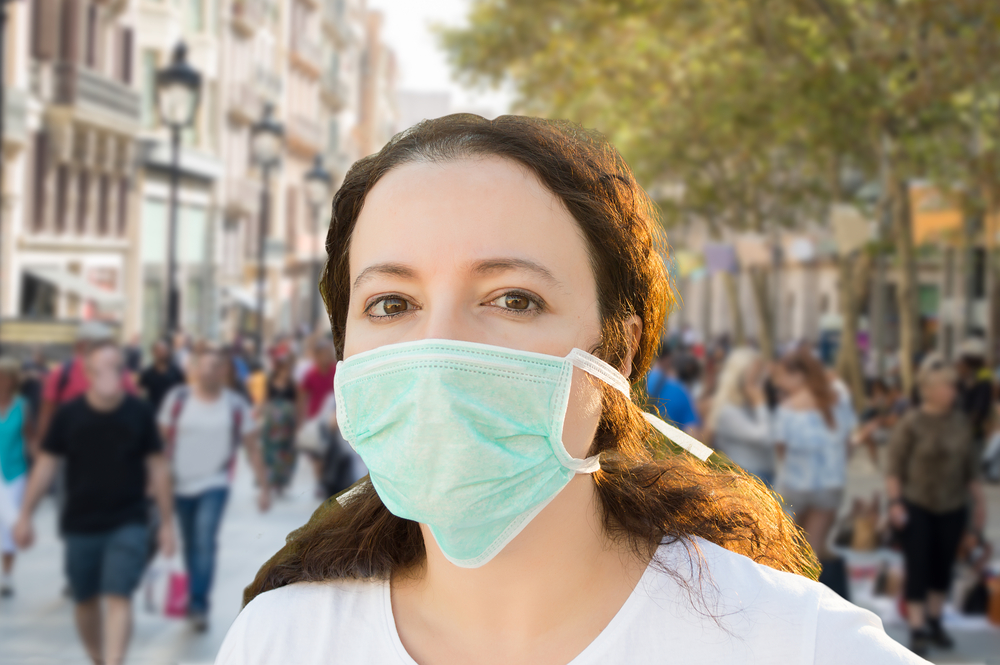Lung Patients’ Improvement Amid UK Lockdown Spurs Call to Reduce Air Pollution
Written by |

As air pollution levels fall in the wake of widespread lockdowns due to the COVID-19 pandemic, one in six U.K. residents with lung conditions report improving symptoms. More than half report a noticeable decrease in air pollution since lockdowns began.
These figures come from a British Lung Foundation (BLF) survey of more than 14,000 people living with lung conditions, including chronic obstructive pulmonary disease (COPD), in the U.K.
Based on these results, the BLF and the Taskforce for Lung Health are calling upon the U.K. government to make a long-term commitment to reducing air pollution — by adopting legal limits set by the World Health Organization (WHO) and installing Clean Air Zones — on behalf of those who are most at risk.
An estimated 12 million U.K. residents have lung conditions such as COPD, asthma, and idiopathic pulmonary fibrosis.
The U.K. government estimates that tens of thousands of its citizens die each year from causes related to air pollution. Beyond the U.K., the WHO estimates that air pollution kills up to seven million people every year worldwide.
Air pollution is especially problematic for those living with lung conditions, as it can aggravate their symptoms and require hospitalization. Air pollution disproportionately affects other groups as well, such as babies in the womb, children, those with existing heart conditions, and older people.
According to the survey, parents of children with lung conditions especially noticed changes in their children’s symptoms and called for action. Nearly one in five of these parents (19.7%) observed their children’s symptoms had improved and 83% stated that air pollution should be a priority for the government.
Concerns over the ongoing global COVID-19 pandemic bolster arguments in favor of clean air enforcement. A growing body of research from across the world suggests a possible relationship between higher levels of air pollution and increased risk of dying from COVID-19.
“Now, more than ever before, we have all become aware of how important it is to look after our lungs, and the government has a duty to ensure that as the country recovers from COVID-19, we can continue to keep air pollution levels down, and keep pushing them lower, with the rapid introduction of Clean Air Zones, support for public and active transport, and tougher air quality laws,” Zak Bond, policy and public affairs officer at the BLF, said in a press release.
“We want to see the government commit to reaching the WHO’s guidelines for fine particulate matter by 2030 at the latest,” Bond added. “For those most vulnerable to the effects of air pollution, such as people with existing respiratory conditions, or those recovering from COVID-19, clean air is crucial for living well now, and in the future.”
Although the Taskforce for Lung Health — a coalition of more than 30 organizations, of which the BLF is a member — recommends Clean Air Zones in support of public health, the U.K. government has put many plans for them on hold as it struggles to respond to the COVID-19 crisis.
“Children deserve to breathe cleaner air and to grow up in a country where their health is not put at risk by going outside,” said Alison Cook, chair of the Taskforce for Lung Health.
“The biggest cause of dangerous air pollution in our towns and cities is from road transport, which is why the Taskforce for Lung Health is also calling for Clean Air Zones in the most polluted towns and cities across Englan,” Cook added.
According to BLF, the drop in air pollution levels during lockdowns resulted from a decrease in road transport and industry, which led to a 40% decrease in nitrogen dioxide levels across the U.K.




